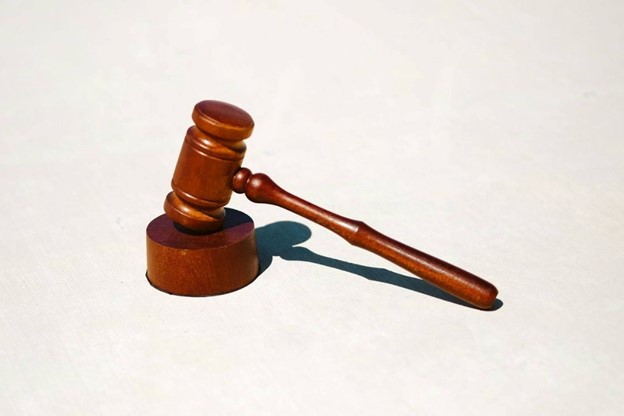
With HomeRiver Group's expertise and commitment to offering exceptional service with local expertise, you can trust us with your property management. Navigating the realm of property rentals can often reveal the complex duties and obligations that landlords and tenants must adhere to.
In Orlando, as in many other cities, delineating these responsibilities is crucial to maintaining a seamless management and living experience. Understanding who is responsible for what can significantly affect the experience of both parties involved — enhancing communication, preventing disputes, and ensuring a peaceful coexistence.
In this article, we will discuss the landlord versus tenant responsibilities in Orlando, providing clarity and guidance to help renters and buyers navigate this landscape more effectively.
Overview Of Landlord And Tenant Responsibilities In Orlando
In Orlando, like many cities across Florida, the landlord-tenant relationship is governed by specific statutes and regulations that outline distinct responsibilities for both parties. This relationship is primarily guided by Florida’s landlord-tenant law (Florida Statute Chapter 83), which ensures landlords and tenants know their rights and duties.
Primary Responsibilities of Landlord: Landlords' primary responsibilities include maintaining the property in a habitable condition, complying with health and safety codes, making necessary repairs, and providing statutory notices to tenants regarding issues like changes in terms of rental agreements. Landlords in Orlando must ensure that all commissioned works are up to municipal standards.
Main Responsibilities of Tenant: On the other hand, tenants must keep the property clean and undamaged, use the premises solely for intended purposes, and adhere to the noise, waste disposal, and safety protocols stipulated in their lease agreements. Moreover, tenants in Orlando are responsible for paying rent on time and notifying the landlord on time about any needed repairs or issues that might arise, thus preventing minor problems from escalating into major damages.
Understanding Legal Frameworks: Florida Statutes And Orlando Ordinances
Florida's state statutes, particularly the Florida Residential Landlord Tenant Act (part of Florida Statutes Chapter 83), provide a breadth of guidelines that outline both landlord and tenant duties. These statutes clarify issues such as security deposits, lease terminations, and the maintenance of the premises.
Additionally, local ordinances in Orlando may supplement state laws with additional regulations tailored to the unique needs of the city’s residents and property environments. For instance, Orlando ordinances often address specific health and safety standards, add stipulations regarding housing inspections, and provide precise protocols for conflict resolution between landlords and tenants.
Choosing HomeRiver Group provides you with a comprehensive range of services all from one provider. As the largest third-party property management company in the U.S., we oversee over 35,000 homes in 30 states and 25,000 homes in HOA communities. We offer complete management, investment, and real estate services, all backed by consistent systems and top industry practices. Our advanced technology and ability to scale make us the perfect choice for serious investors focused on efficiently managing their time and resources.
Ready to simplify your property management experience in Orlando? Partner with HomeRiver Group today and discover how we can help you maximize your rental income, reduce vacancies, and ensure your property is well-maintained.

Key Responsibilities Of Landlords In Orlando
In Orlando, landlords are critical in ensuring the habitability and legal compliance of their rental properties. Understanding these responsibilities can help landlords prevent legal issues and foster positive relations with tenants.
Here are some of the fundamental duties that landlords must adhere to:
Maintain Structural Integrity
Landlords are required to maintain the buildings' safe and sound structural condition. This includes ensuring the proper operation of essential services like roofing, electrical systems, plumbing, and foundational integrity.
Ensure Health And Safety
Landlords must ensure that all rental units meet local health and safety standards. This includes keeping common areas clean and safe, ensuring that all appliances provided are in safe working order, and that no hazards could endanger tenants.
Provide Essential Services
Orlando landlords are responsible for providing essential services such as water, heating, and, in many cases, air conditioning, particularly if these items are included in the lease. They must make repairs on time to avoid disrupting these essential services.
Adhere To Building Codes
Compliance with local building codes is mandatory; landlords must ensure that all aspects of their property meet the specific codes and ordinances. This includes regular inspections and obtaining necessary permits for any modifications or repairs.
Respect Tenant's Privacy
Florida law requires landlords to respect the privacy of their tenants. Except in emergencies or as otherwise permitted by the tenant, landlords should provide at least 12 to 24 hours of notice before entering a rented unit.
Handling Security Deposits
Landlords must handle security deposits according to Florida state laws. This includes storing the deposit in a Florida banking institution and returning it within the specified time frame after the tenant has moved out, provided there are no damages beyond normal wear and tear.
Key Responsibilities Of Tenants In Orlando
Understanding tenant responsibilities is crucial for a harmonious rental experience in Orlando. Tenants must adhere to obligations to maintain the property’s condition and ensure timely financial dealings.
Here are some of the key responsibilities that tenants in Orlando should be aware of:
Timely Rent Payments
One of the fundamental responsibilities of tenants is the prompt payment of rent. This is typically due on the first of each month, but tenants should consult their lease agreements for specific details regarding payment deadlines and methods.
Care And Maintenance Of The Property
Tenants are expected to keep the property clean and orderly. This includes regular household duties such as disposing of trash correctly, and more substantial obligations like notifying the landlord of any needed repairs or potential hazards.
Respect Property Rules
Many rental properties in Orlando have specific rules regarding noise levels, pet ownership, and modifications to the space. Tenants should familiarize themselves with and adhere to all property rules specified in their lease agreements to avoid disputes and potential eviction.
Reporting Maintenance Issues
Tenants must report any maintenance issues or damage promptly. Early reporting can prevent minor problems from escalating into major repairs, thus maintaining a safe and habitable living environment.
Compliance With Law
Tenants are required to abide by all local, state, and federal laws. This includes but is not limited to, avoiding illegal activities within the rental premises and ensuring compliance with safety regulations.
Proper Notice Before Leaving
Tenants must give the landlord adequate notice when planning to move out, as stipulated in the lease agreement. This allows the landlord sufficient time to find a new tenant and ensures a smoother transition for both parties.
Resolving Disputes: Mediation And Legal Options
When disputes arise between landlords and tenants in Orlando, mediation and legal options must be considered as viable approaches to resolving issues. Choosing the right method can significantly impact the resolution process's efficiency and amicability.
Mediation
Mediation serves as a practical first step in resolving landlord-tenant disputes. This method involves a neutral third party who helps the landlord and tenant discuss their issues and, ideally, reach a mutual agreement. Mediation is generally less adversarial and more cost-effective than taking legal action. It focuses on communication and negotiation, allowing both parties to express their concerns and work together to find a solution without the formalities of a courtroom.
Legal Options
However, if mediation does not resolve the dispute, tenants and landlords may consider legal options. In Orlando, this typically involves presenting the case in a court that handles landlord-tenant disputes, such as the Orange County Court. Legal action should be considered a last resort due to the potential for increased tension, higher costs, and longer resolution times.
Tenant laws in Florida provide specific protections—such as the right to habitable housing and the return of security deposits—that, if violated, can form strong grounds for legal action. Conversely, landlords have legally supported avenues to address issues such as non-payment of rent or property damage.
Mediation and legal interventions require understanding local laws and statutes, underscoring the importance of consulting with legal professionals experienced in Florida's landlord-tenant laws. Companies like HomeRiver, with their deep local knowledge and extensive experience, play a critical role in guiding landlords and tenants through either channel, ensuring that rights are preserved and respected throughout the process.

Final Thoughts
Understanding the distinct responsibilities of landlords and tenants in Orlando is crucial for maintaining a harmonious rental relationship and ensuring the well-being of the rental property. Landlords are primarily responsible for providing a safe and habitable living environment, complying with all local housing and building codes, and making required repairs on time. On the other hand, tenants must uphold their end of the bargain by keeping the property clean and undamaged, paying rent on schedule, and adhering to the terms outlined in their lease agreements.
For both landlords and tenants, knowledge is power. Being well-informed about local laws and regulations can prevent conflicts and misunderstandings. HomeRiver Group stands ready to assist both parties in easily navigating these responsibilities. Our commitment to providing exceptional service, combined with our deep local expertise, ensures that your rental experience in Orlando is smooth and stress-free. Remember, your property is our priority, and we are here to support you every step of the way in your leasing journey.
Read also:
Real Estate Asset Management Best Practices That Put Money in Your Pocket
Maximizing Profits: The Benefits of Using a Leasing Only Service for Landlords
5 Must-Have Tips for Conducting a Successful Rental Analysis
Frequently Asked Questions About Orlando Landlord vs Tenant Responsibilities
Who is responsible for maintaining the HVAC system in Orlando rentals?
In Orlando, the landlord is typically responsible for maintaining the heating, ventilation, and air conditioning (HVAC) systems. This includes ensuring the system is in good working order at the time of rental and making any repairs due to ordinary wear and tear.
Who handles garbage removal in an Orlando rental unit?
Garbage removal responsibilities can vary depending on the lease agreement. Usually, landlords in Orlando are responsible for arranging garbage pickup services, but the cost may be passed on to tenants directly or as part of the rent.
What must a landlord disclose about a property in Orlando?
Orlando landlords must disclose specific information to tenants: the existence of lead-based paint for properties built before 1978, details about mold contamination, and information about manufacturing methamphetamine, if applicable. These disclosures must be made before the lease is signed.
Are Orlando landlords required to provide pest control?
Yes, Florida law requires landlords to provide pest control before a tenant moves in. The responsibility for ongoing pest control should be specified in the lease agreement, although it typically falls to the landlord unless the infestation is caused by the tenant’s living habits.
Is it the landlord or tenant’s responsibility to maintain the yard in Orlando rentals?
Responsibility for yard maintenance in Orlando rentals generally depends on the lease agreement. Often, landlords are responsible for maintaining common areas and the overall landscaping, while tenants might be responsible for smaller, designated areas.
What are the rules for security deposits in Orlando?
In Orlando, as in the rest of Florida, landlords can charge a security deposit to cover damages, unpaid rent, or breach of lease terms. Florida law requires that landlords must return the security deposit within 15 to 60 days after the tenant has moved out, depending on whether the landlord makes a claim on it.
Who pays for water and electricity in Orlando rental properties?
The tenant typically pays for utilities such as water and electricity. However, this can vary and should be clearly stated in the lease agreement. In some cases, landlords may include utilities as part of the rent.
How quickly must Orlando landlords make emergency repairs?
The landlord must make emergency repairs in Orlando rentals as soon as possible to avoid hazards or further damage to the premises. Florida law requires landlords to address urgent repair needs within 24 hours.
What are a tenant's responsibilities for property upkeep in Orlando?
Tenants in Orlando are generally responsible for keeping the rental property clean and sanitary, using fixtures and appliances properly, and not causing damage beyond normal wear and tear. They must also comply with all housing, health, and building codes.
How are repair requests handled between landlords and tenants in Orlando?
Tenants should submit repair requests to their landlord in writing. Orlando landlords must make non-emergency repairs within a reasonable time, typically seven days. Communication and documentation are key in ensuring repairs are made promptly and adequately.








